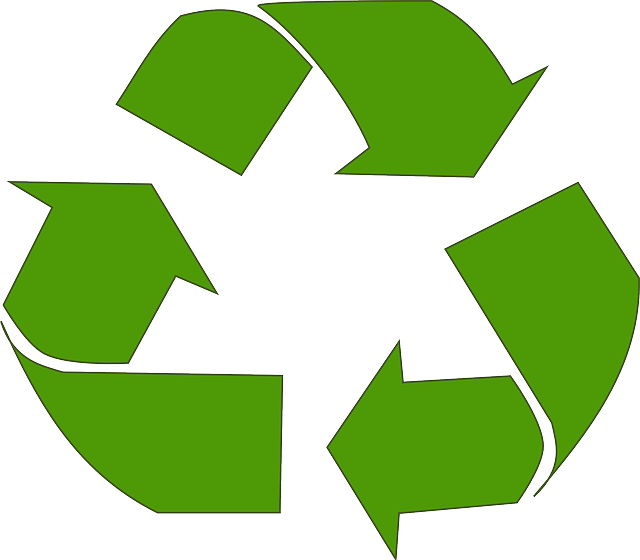Recycling Services at Modern Plastics
Modern Plastics is committed to contributing to a cleaner, more sustainable world.
People concerned with protecting the environment should know that plastics contribute to energy efficiency, resource conservation and waste reduction.
Modern Plastics recycles its plastic waste, and has programs in place to recycle the plastic scrap and waste for our customers.
Inquire to bcarbone@modernplastics.com to see if we can help recycle your plastic scrap materials.
Following are some fast facts on plastics and energy:
- Plastics help conserve resources. Using lightweight, durable, formable plastics, manufacturers can minimize raw materials used, energy consumed and waste generated.
- Plastics save energy. Only about 4 percent of U.S. total energy consumption goes into the creation of plastic products, and it often takes less energy to convert plastics from a raw material into a finished product than comparable products made of other materials.
- During their life cycle, plastic bags require about one-third less energy to make than paper bags.
- Foam polystyrene containers take 30 percent less total energy to make than paperboard containers.
- 53 billion kilowatt hours of electricity are saved annually by improvements in major appliance energy made possible by plastic applications. Without the benefits provided by plastics insulation, these appliances would use up to 30 percent more energy.
- Without plastics, the energy used to produce packaging would double. By using plastics rather than its alternatives, American manufacturers save more than 330 Btu. This is a difference equivalent to 58 million barrels of oil, 325 billion cubic feet of natural gas or 32 billion pounds of coal.
- Plastics are lighter than many alternative materials. They have consistently reduced the weight of truck payloads and allowed companies to ship more product in fewer trucks – saving energy. For instance, 2.8 million plastic grocery bags can be delivered in one truck; the same truck can hold only 500,000 paper grocery bags.
- Over the lifetime of the average car, plastic parts save 650 gallons of gas as a result of their lighter weight.
- The energy saved by recycling a one-gallon plastic milk jug will keep a 100-watt bulb burning for 11 hours.
- By using plastics in their packaging, product manufacturers save enough energy every year to power a city of 1 million homes for 3-1/2 years.
Plastics and Energy Efficiency
Can plastics actually save energy? Yes. And they use less energy than you might think. The raw materials that go into the production of plastics account for only 1.5 percent of total U.S. energy consumption. In addition, it often takes less energy to convert plastics from a raw material into a finished product than comparable products made of other materials.
Plastics in the Waste Stream
Following are some fast facts on plastics in the waste stream:
- Without plastics, the total volume of packaging waste would increase by around 160 percent.
- Because plastics are lightweight, durable and versatile, manufacturers can minimize the material used and the waste generated by using plastic products and packaging.
- Without plastics’ resistance to corrosion, the product life of some major appliances would be reduced by nearly 40 percent. By helping them last longer, plastics keep appliances and other durable goods out of the waste stream.
- You could carry home 1,000 oz. of soda in 2 lbs. of plastic packaging, but it would take 27 lbs. of glass, 8 lbs. of steel and 3 lbs. of aluminum to do the same job.
- It takes 4.3 lbs. of glass to package one gallon of milk or juice, but less than 1/4 lb. of plastic to do the same job.
- Some plastics can be recycled. Hundreds of quality products made with or packaged in post-consumer recycled plastic now are commercially available. Two soft drink bottles can make a baseball cap, when recycled into polyester fiber. And artificial lumber made of recycled plastic is used in sea walls, fence posts and park benches. Plastic bags and stretch wrap are finding their way into decking material that is unsurpassed for its durability. It does not decay or crack, resists damage from termites and ants and requires no protective sealants.
- Plastic packaging, which makes up less than 6 percent (by weight) of discarded products in the municipal waste stream, can be disposed of safely in landfills.
- When incinerated, plastics – with their high energy content – help the entire mix to burn more efficiently, enhancing waste-to-energy conversion and leaving less ash.
Summary of the impact of the plastics industry
Plastics are responsible for countless facets of the modern life we enjoy today. From health and well being, nutrition, shelter and transportation to safety and security, communication, sports, leisure activities and innovations of industry – plastics deliver bountiful benefits to you and your world. The men and women of the plastics industry make it all possible.
In the United States, the plastics industry accounts for more than $374 billion dollars in annual shipments and directly employs 1.1 million people.
The Society of the Plastics Industry advocates continuous innovation and improvement in applying sustainability principles in the manufacturing, distribution, use and disposition of plastic materials. You can get further facts to debunk some myths you may have heard about plastics and the environment by visiting SPI’s web site at www.plasticsindustry.org. Join the cause and protect the continued and further use of plastics in many applications.

